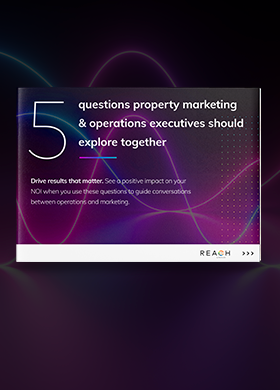5 Questions
For Better Marketing Returns
Are you ready to drive results that matter? Property marketing spend can significantly impact NOI — in a positive way — but only if you know what questions to ask your marketing team. It used to be hard to see and understand property marketing results. Marketers had a hard enough time tracking which leads came […]




